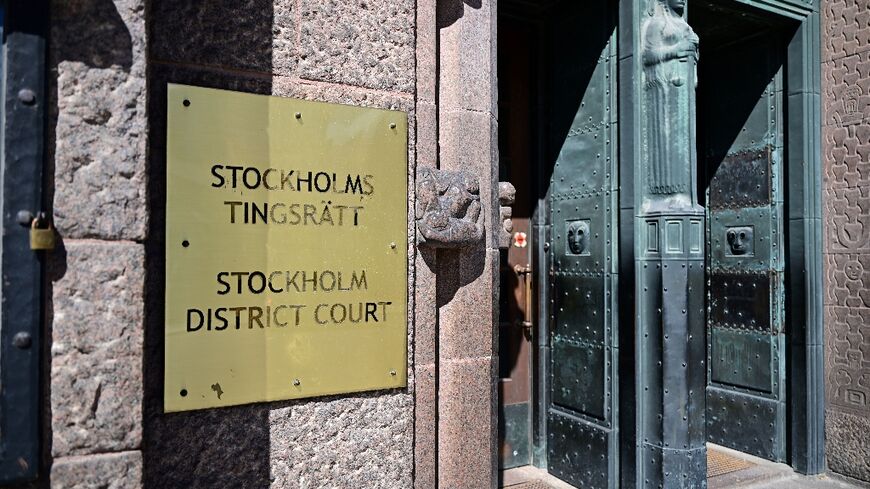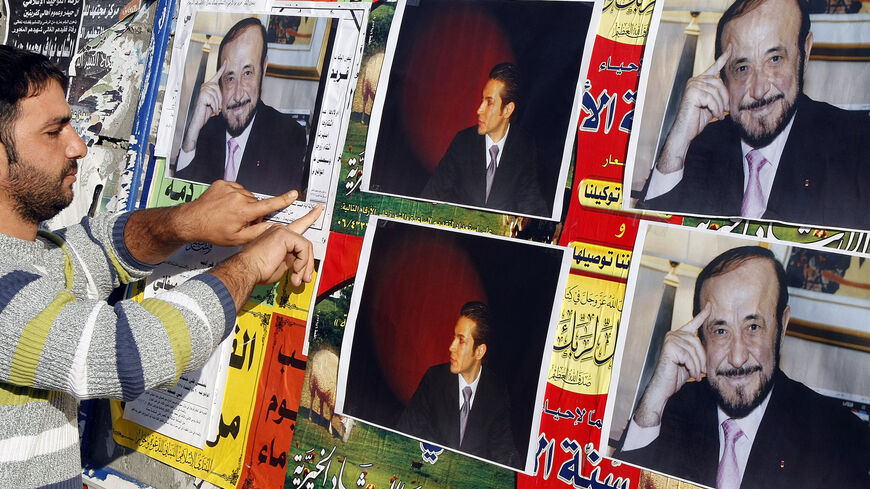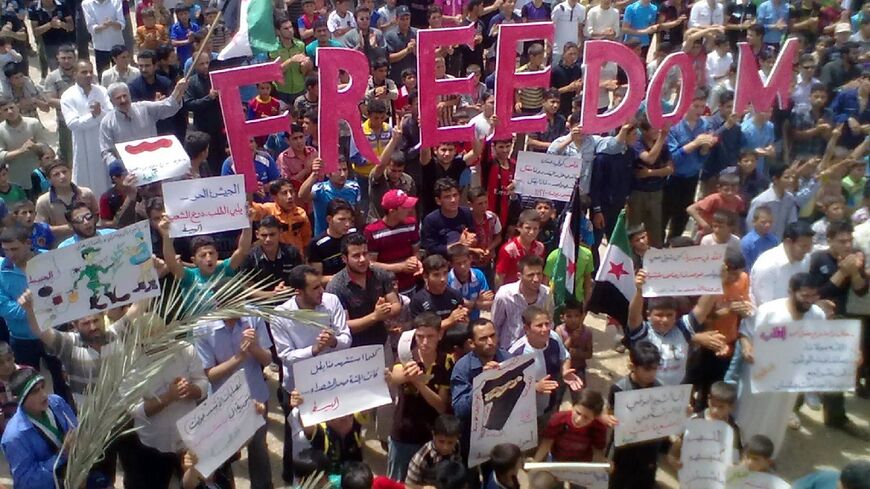Top Syrian officer faces war crimes charges in Swedish court

The highest-ranking Syrian military official to be tried in Europe on Monday appeared before a Stockholm court accused of war crimes during Syria's civil war.
Former brigadier general Mohammed Hamo, 65 who lives in Sweden, is accused of "aiding and abetting" war crimes and could get a life jail sentence.
The war between President Bashar al-Assad's regime and armed opposition groups, including Islamic State, erupted after the government repressed peaceful pro-democracy protests in 2011.
It has killed more than half a million people, displaced millions, and ravaged Syria's economy and infrastructure.
Wearing a dark blue shirt, jeans and sneakers, Hamo listened carefully and took notes as prosecutor Karolina Wieslander read out the charges.
Wieslander said Hamo had contributed -- through "advice and action" -- to the Syrian army's warfare, which "systematically included attacks carried out in violation of the principles of distinction, caution and proportionality."
"The warfare was thus indiscriminate," Wieslander told the court.
The charges concern the period of January 1 to July 20, 2012. The trial is expected to last until late May.
- 'Disproportionate' -
The prosecutor said the Syrian army's "widespread air and ground attacks" caused damage "at a scale that was disproportionate in view of the concrete and immediate general military advantages that could be expected to be achieved."
In his role as brigadier general and head of an armament division, Hamo allegedly helped coordinate the supply of arms and ammunition to units.
Hamo's lawyer, Mari Kilman, told the court her client denied criminal responsibility and had not shown "intent" to contribute to "indiscriminate warfare" by others, Kilman said.
Kilman said the officer could not be held liable for the actions "as he had acted in a military context and had to follow orders."
Hamo also denied all individual charges and argued that Syrian law should be applied.
Several plaintiffs are to testify at the trial, including Syrians from cities that were attacked and a British photographer who was injured during one strike.
- 'Impunity' -
"This trial is the first in a European Court to concern the conduct of hostilities and more specifically, indiscriminate attacks by the Syrian army," Aida Samani, senior legal advisor at rights group Civil Rights Defenders, told AFP on the morning of the trial.
Samani added that "thousands of civilians were killed, harmed and had their houses destroyed" in these attacks.
"Yet those attacks all happened with impunity. There's never been a trial where these, the victims of these attacks, have had the chance to address what happened and have what happened recognised by an independent court of law," Samani said.
The prosecution went on to spend much of the first day outlining the background of the conflict and showing reports to indicate that the civil war had begun at the time in question, a prerequisite for the actions to be tried as war crimes.
Hamo is the highest-ranking military official to go on trial in Europe, though other countries have tried to bring charges against more senior members.
In March, Swiss prosecutors charged Rifaat al-Assad, an uncle of President Bashar al-Assad, with war crimes and crimes against humanity.
However, it remains unlikely Rifaat al-Assad -- who recently returned to Syria after 37 years in exile -- will show up for the trial, for which a date has yet to be set.
Swiss law allows for trials in absentia under certain conditions.
In November, France issued an international arrest warrant for Bashar al-Assad, accusing him of complicity in crimes against humanity and war crimes over chemical attacks in 2013.
Three other international warrants were also issued for the arrests of Bashar al-Assad's brother Maher, the de-facto chief of the army's elite Fourth Division and two generals.
In January 2022, a German court sentenced former colonel Anwar Raslan to life in jail for crimes against humanity. That was the first international trial over state-sponsored torture in Syria and was hailed by victims as a victory for justice.








